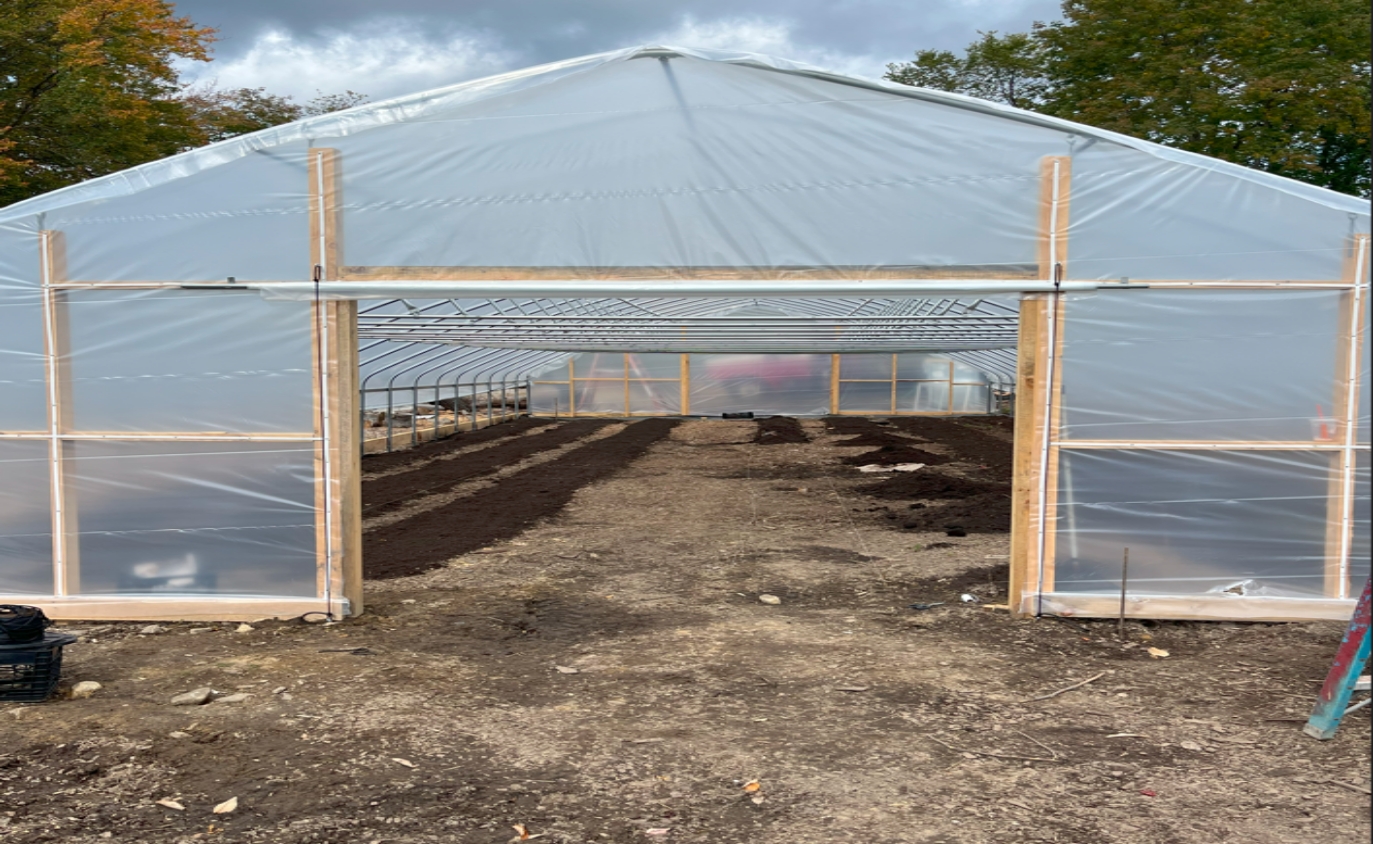Winter presents unique challenges for small organic farms, but with a little preparation and the right strategies, it can also be a season of productivity and growth. To help you out, here are some practical tips for maintaining the health of your crops and ensuring your farm thrives (not just survives) during the colder months.
Understanding Your Microclimate
Every farm has its unique microclimate and, yes, even in Lil’ Rhody there are microclimates. Observe how frost, snow, and sunlight behave on different parts of your land. Identify warmer spots that might be suitable for winter crops or areas that need protection from cold winds. Understanding your farm/land’s specific winter conditions is crucial for planning. Remember, “not having a plan, is planning to fail”. This simple action can save you a lot of grief.
Choosing the Right Crops
Not all crops are suited for winter growth, but many thrive in cooler temperatures. Root vegetables like carrots, beets, and turnips can withstand frost. Leafy greens such as kale, spinach, and collards often become sweeter with a touch of frost. Hardy herbs like rosemary and thyme can also survive winter with some care. Basic due diligence of the crops you’re intending to plant will help narrow down on your selection.
Utilize Season Extension Techniques
Season extension techniques such as hoop houses, cold frames, and greenhouses can significantly prolong your growing season. We have these at The Farm and you are welcome to check them out. These structures trap heat and protect plants from harsh weather, allowing you to grow a variety of vegetables throughout the winter. It’s also a really nice and relaxing place to hangout on cold winter days!
Soil Care and Mulching
Winter can be tough on soil, leading to erosion and nutrient loss. You can protect your soil by planting cover crops like clover or rye, which add organic matter and prevent erosion. Mulching with straw or leaves can also help insulate the soil, retaining moisture and protecting the roots of perennial crops.
Water Management
While overwatering can be a concern in the winter due to reduced evaporation, your crops still need water. Water your plants during the warmer part of the day to prevent freezing at night. Also, make sure your irrigation system is winter-ready by draining hoses and insulating exposed pipes.
Pest and Disease Management
Pests and diseases can still be a problem in winter. Regularly inspect your crops and remove any diseased plant material. Use organic pest control methods, like neem oil or insecticidal soap, to manage infestations.
Protecting Perennials
If you have perennial crops or plants, winter is a time to protect them. Mulching around the base of the plants can help insulate their roots. For more sensitive perennials, consider using burlap or frost cloths for added protection.
Plan and Prepare for Spring
Use the quieter winter months to plan for the spring. This can be a great time to repair equipment, order seeds, and strategize for the upcoming growing season. Take advantage of this time to educate yourself further on organic farming practices. The season comes fast!
Check Out Winter Markets
Winter markets are becoming increasingly popular. Products like winter vegetables, preserved goods, and value-added products like jams and pickles are a great way to stay connected with our awesome farmers and customers year-round. Venture out and explore new markets in new areas, too! It’s always an adventure.
Stay Connected with Your Community
Keeping in touch with The Farm over winter also means staying connected with a community of like-minded individuals who value sustainable, organic farming. It’s a reminder that being part of a CSA or supporting a local farm is about more than just transactions; it’s about being part of a community that shares common values and goals! Plus, we love hearing from you!

